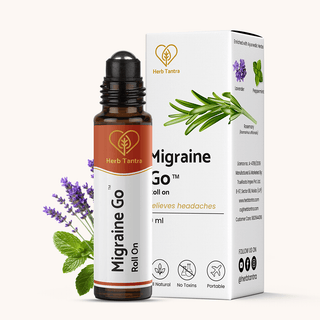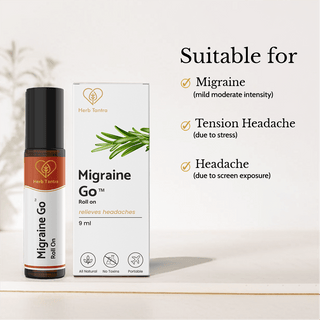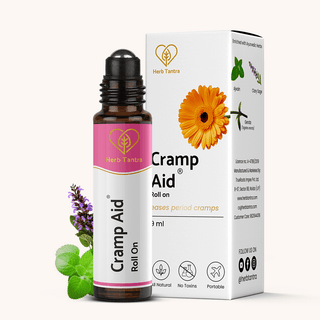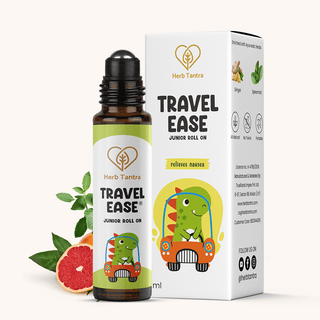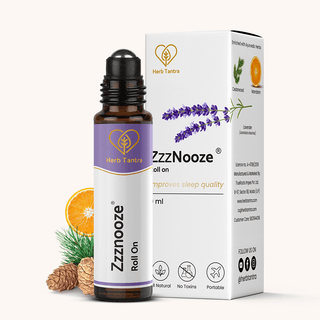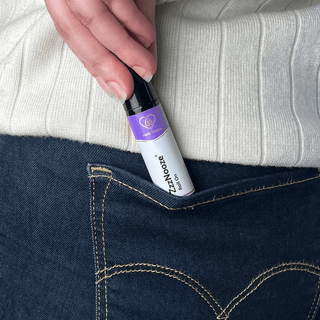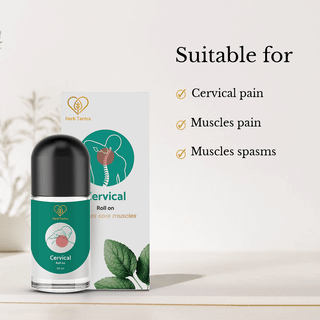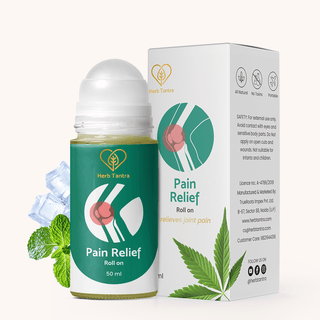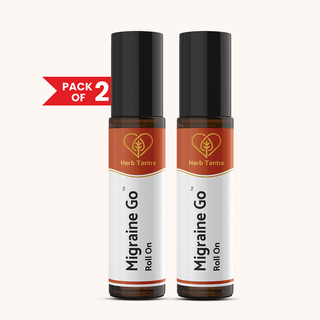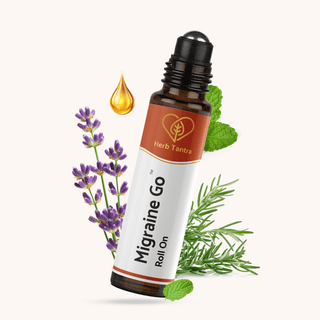Managing stress and anxiety isn’t just about reacting to symptoms—it’s about creating a daily rhythm that supports balance and calm. Self-care plays a vital role in regulating hormones, improving mood, and preventing chronic stress before it takes hold. Through mindful habits, Ayurvedic remedies, and simple lifestyle choices, you can cultivate resilience and emotional steadiness. This guide explores easy, natural ways to reduce stress daily and shows how Herb Tantra’s Stress Relief Range can support your journey.
The Connection Between Self-Care and Mental Health
Your body and mind work in sync—when one is out of balance, the other follows. Poor sleep, irregular meals, or constant digital stimulation can raise cortisol levels, disrupt your circadian rhythm, and lead to anxiety symptoms like fatigue, mood swings, and restlessness.
A consistent self-care routine helps stabilize your nervous system and lowers stress hormones naturally.
Tip - Even 10 minutes of intentional calm—breathing, journaling, or sipping herbal tea—can shift your body out of “stress mode.”
Morning - Ground Your Mind Before the Day Begins
How you start your morning often defines the rest of your day. Avoid rushing straight into screens or caffeine, which can spike cortisol and worsen anxiety.
- Practice gratitude - Write down three things you’re thankful for—it rewires your brain for positivity.
- Mindful breathing - Inhale deeply for 4 counts, hold for 4, exhale for 6. Repeat five times to center yourself.
- Use Calm Down Roll On - Made with Lemon, Patchouli, and Geranium, roll it on wrists or behind ears and inhale to begin your morning grounded and focused.
Pair your practice with a light, balanced breakfast—protein-rich and low in sugar—to maintain stable energy and mood.
Midday - Keep Your Energy and Focus Balanced
Workday fatigue and screen time can drain mental focus and elevate stress hormones. Instead of another coffee, take a 5-minute pause.
- Stretch or step outside - Gentle movement and sunlight exposure increase serotonin and dopamine, your “happy hormones.”
- Drink Calm Down Herbal Tea - Made with Butterfly Pea, Lemongrass, Mulethi, and Chamomile, this Ayurvedic blend helps calm nerves and support digestion.
- Practice mindful eating - Slow, deliberate meals support gut health, which directly impacts mood and stress response.
Evening - Transition From Work to Rest
Evenings are your opportunity to decompress and reset. Avoid scrolling or multitasking right after work—give your mind time to transition.
- Gentle yoga poses - Try Child’s Pose (Balasana) or Legs-Up-the-Wall (Viparita Karani) to release muscle tension.
- Use Calm Down Junior Roll On for kids - If your child struggles with restlessness, apply on wrists, behind ears, or chest. The Cedarwood, Patchouli, and Geranium blend helps calm hyperactivity and anxiety naturally.
- Journal before dinner - Reflecting on your day helps process emotions and prevent stress buildup.
Tip - Keep your evenings screen-free for at least 30 minutes before bed to protect your sleep cycle.
Night - Build a Restful Sleep Ritual
Quality sleep is essential for managing anxiety and preventing chronic stress. Inadequate rest raises cortisol and affects your immune system, mood, and focus.
- Sip Calm Down Herbal Tea to relax your nervous system.
- Apply Calm Down Roll On on wrists or behind ears before bedtime for a calming sensory cue.
- Practice a 5-minute body scan meditation—focus on each muscle group, release tension, and allow your body to fully relax.
Aim for 7–9 hours of uninterrupted sleep. Over time, your body learns to associate this nightly routine with safety and calm.
The Role of Diet and Gut Health in Managing Stress
Your gut and brain are deeply connected through the vagus nerve—often called the “gut-brain axis.”
- Eat fiber-rich vegetables, whole grains, fermented foods, and nuts to improve gut microbiota.
- Avoid excessive caffeine and sugar, which can heighten anxiety symptoms.
- Stay hydrated and include herbal teas like Calm Down Herbal Tea to support digestion and balance.
Balanced gut health promotes serotonin production, improving mood and reducing anxiety naturally.
When to Seek Professional Support
If anxiety, panic attacks, or stress symptoms persist despite consistent self-care, consult a healthcare professional. Combining medical advice with natural remedies ensures a holistic, sustainable recovery.
Conclusion
Stress and anxiety don’t have to control your life. With consistent self-care—mindful breathing, journaling, healthy meals, and herbal support—you can build emotional strength and inner calm. Small, daily rituals with Herb Tantra’s Stress Relief Range make it easy to integrate Ayurveda into modern living, helping you stay centered and peaceful every day.
FAQs
1. How does daily self-care reduce stress and anxiety?
Self-care lowers cortisol, improves sleep, and stabilizes mood by giving your mind and body consistent recovery time.
2. What’s the role of diet and gut health in stress management?
Healthy gut bacteria produce mood-regulating neurotransmitters like serotonin, helping reduce anxiety symptoms.
3. Can herbal teas really help with stress relief?
Yes. Herbal blends with chamomile, lemongrass, and mulethi—like Calm Down Herbal Tea—support relaxation and better sleep.
4. How can journaling and gratitude practice help?
Writing daily reflections improves emotional clarity, reduces rumination, and promotes calm awareness.
5. How can I make stress relief a consistent habit?
Pair rituals—like using Calm Down Roll On or drinking herbal tea—with regular times of the day so they become automatic and effortless.




